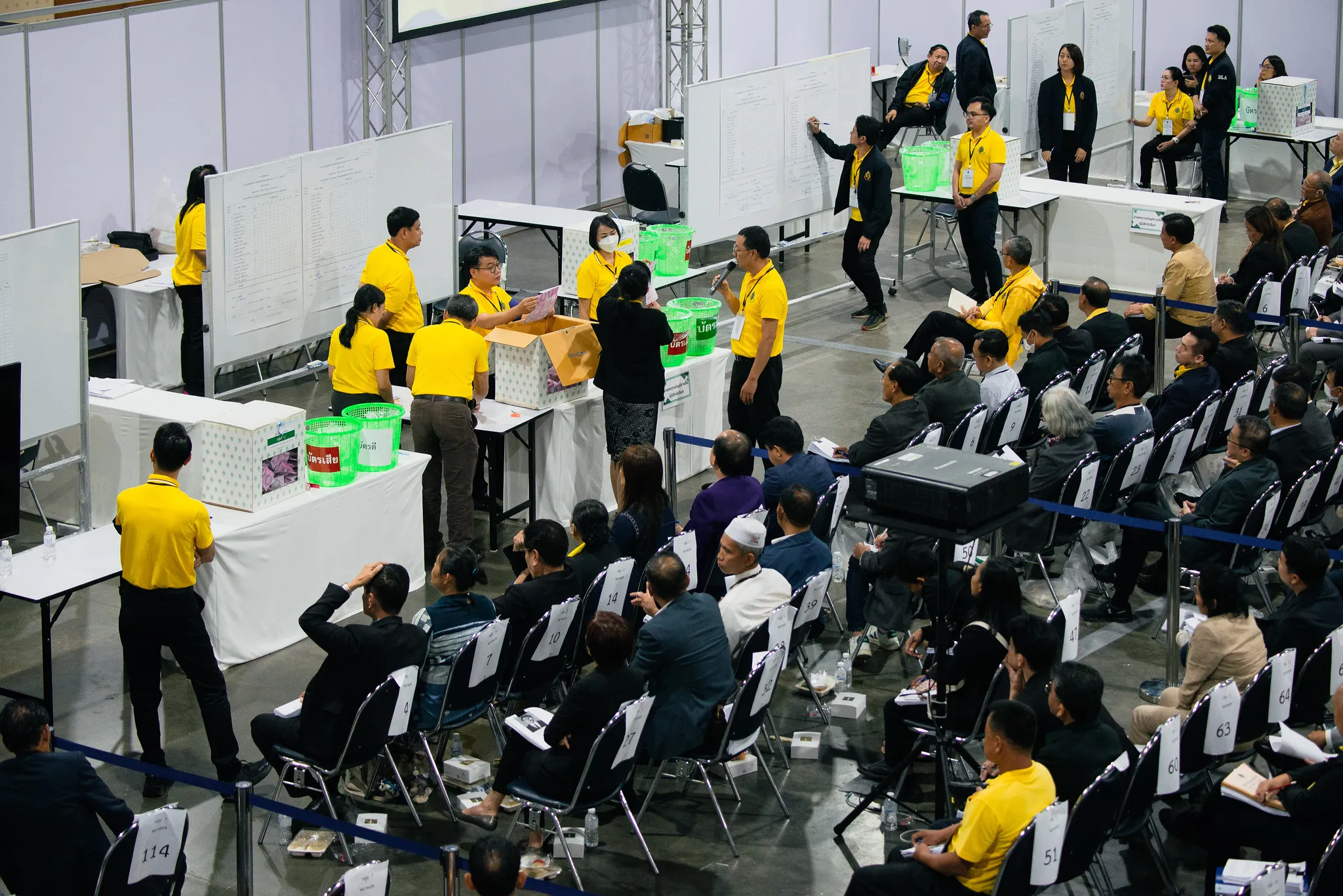
Disclaimer: Opinions expressed in this commentary are those of the authors and do not necessarily represent the institutional position of International IDEA, its Board of Advisers or its Council of Member States.
Note: This is the third blog in a three-part series on Thailand’s senatorial elections. The first blog post explaining the complex electoral process can be read here, while the second blog outlining what’s at stake can be read here.
On 26 June, Thailand concluded its complex Senate election, marking the first upper house poll held since the military coup in 2014. However, thousands of electoral fraud complaints and an investigation into candidate qualifications delayed the official announcements of the results, initially set to be published on 3 July. On 10 July, the Senate officially endorsed the 200 new senators.
The provisional results released by the Election Commission (EC) on 2 July – which remain largely unchanged – provided a glimpse into the new Senate's composition. The question now looms: Will the new Senate be a departure from the outgoing military-appointed body, or will it perpetuate the status quo? Pundits lean towards the latter, but the potential for positive change cannot be discounted.
How did the election process go?
The self-selection process was expectedly relatively quiet, given that only those who applied to be candidates were allowed to vote in the in-direct election (Read more on the election process here). Of the 45,000 approved candidates, approximately 3000 finalists met on 26 June to vote on one another. Pro-reform activists had hoped that over one hundred thousand people would compete, but various factors, including the high application fees, may have contributed to falling short of this number. Nevertheless, on 27 June, the Election Commission released a list of 200 senators-elect and 100 substitutes in the case of disqualifications. Beyond one candidate being replaced by a substitute, the preliminary list of senators remained intact and was made official on 10 July.
The delay in publishing the official results has raised several concerns. The EC received thousands of complaints about block-vote rigging allegations, fake degrees, and false information provided in certain candidates’ registration documents. Allegations that some candidates were hired to participate in the race and cases of group voting, where candidates diverted their votes to other candidates supported by political groups – called into question the election’s credibility. While investigations are pending, the EC stated that 'at this point, we cannot say the voting was not free and fair.'
Political experts and observers have not shied away from criticizing the election system for its disproportionate representation across provinces. Punchada Sirivunnabood, associate professor of social sciences and humanities at the Mahidol University in Bangkok, points out that ‘'the Senate should ideally be representative of all provinces, but results show that although occupation groups are covered, only around 44 (out of 76) provinces are represented.’' This critique sheds light on the election system's flaws and informs the public about the need for reform. Indeed, as a Thai reformist speaking on condition of anonymity noted, the provisional results ‘'serve as a reminder that the establishment makes the rules and knows how to use [state mechanisms] to achieve their ends.’' In other words, an overly complicated system to select senators might be working as intended.
Who are the big winners?
It’s difficult to say for sure whether pro-reform or conservative candidates won more seats, given the rule that candidates cannot hold political positions or be backed by political parties. However, political analysts have assessed that most incoming senators align with conservative interests. According to the Election Commission’s preliminary results, more than half of the elected senators are tied to the Bhumajaithai Party (BJT). This conservative and populist group is the third-largest party in the lower house and partners in the Pheu-Thai-led ruling coalition. Buri Ram in Northeastern Thailand, a stronghold province for BJT, saw the most senators (14) elected, while at least 80 elected senators come from twelve provinces where BJT has Members of Parliament. Other significant figures include former army generals, civil servants and police officers as well as a few academics and human rights activists.
What next for Thailand’s politics?
Two potential scenarios could unfold over the next five years. The most likely scenario suggests minimal change, with the 'old guard' simply adopting a new vehicle to maintain their influence over the Senate. Constitutional amendments are still on the table; however, political analysts note that significant legal changes like changing the senate voting system and amending the lese majeste law are unlikely under a BJT-dominated senate. However, a more positive second scenario might see those local leaders and senators-elect with diverse backgrounds driving positive change that centres around the communities and ordinary people they serve. Coupled with sufficient external pressure, these leaders might align themselves more with public demands, offering a glimmer of hope for Thailand's democratic future.




